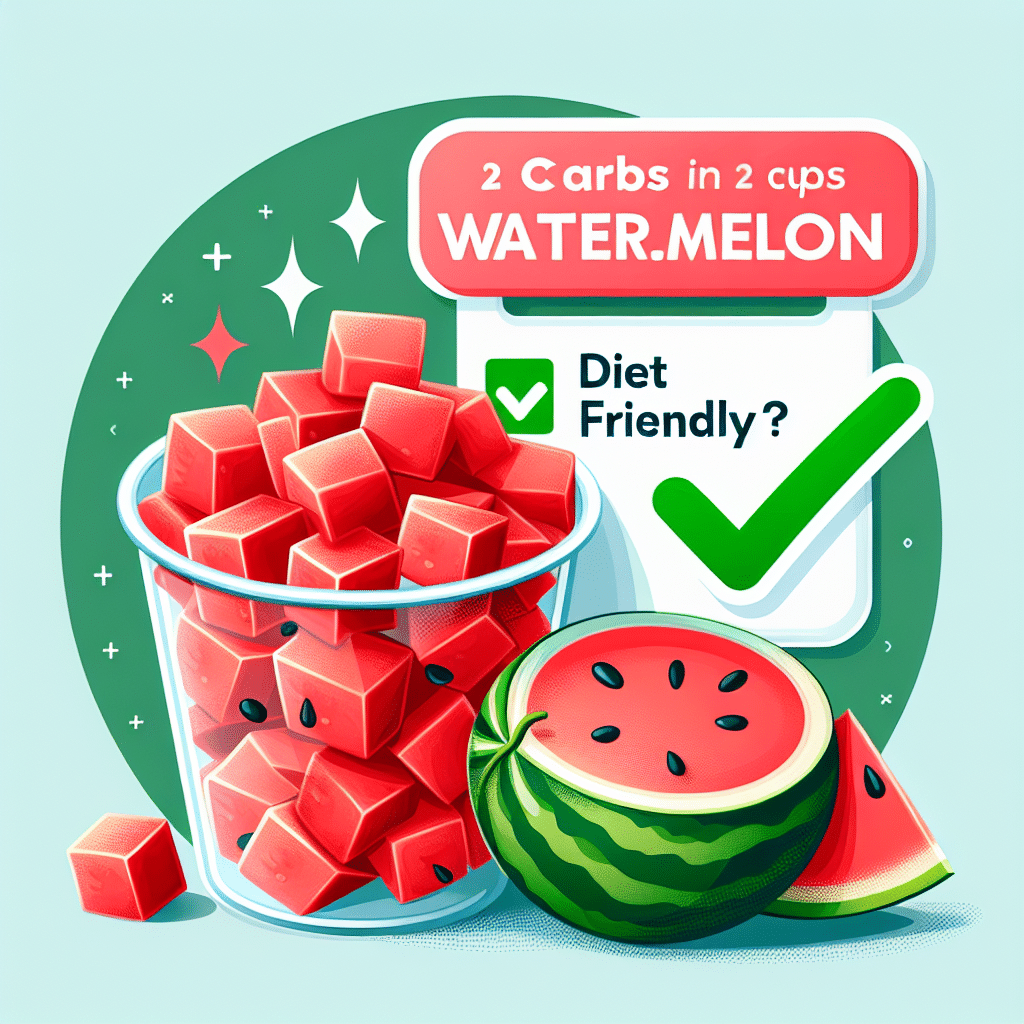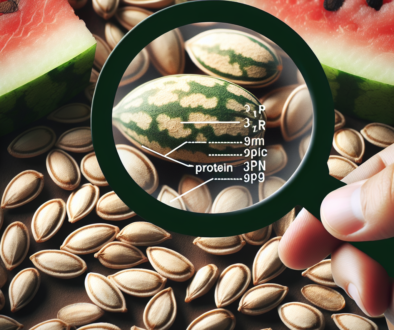Carbs in 2 Cups of Watermelon: Diet Friendly?
-
Table of Contents
- Carbs in Watermelon: A Diet-Friendly Choice?
- Nutritional Profile of Watermelon
- Carbohydrate Content in 2 Cups of Watermelon
- Glycemic Index and Glycemic Load of Watermelon
- Is Watermelon Diet-Friendly?
- Benefits of Including Watermelon in Your Diet
- How to Incorporate Watermelon into a Balanced Diet
- Case Studies and Research
- Conclusion: Making an Informed Choice
- Discover ETprotein’s Protein Products
Carbs in Watermelon: A Diet-Friendly Choice?

Watermelon is a refreshing and popular fruit, especially during the warm summer months. It’s not only delicious but also packed with hydration and nutrients. However, for those who are conscious about their carbohydrate intake, such as individuals following a low-carb or ketogenic diet, the question often arises: “Is watermelon a diet-friendly option?” In this article, we’ll explore the carbohydrate content in 2 cups of watermelon and discuss whether it’s a suitable choice for those looking to maintain a healthy diet.
Nutritional Profile of Watermelon
Before diving into the specifics of watermelon’s carbohydrate content, let’s take a look at the overall nutritional profile of this juicy fruit. Watermelon is low in calories and fat and is a good source of vitamins and minerals, including vitamin C, vitamin A, potassium, and magnesium. It also contains antioxidants such as lycopene, which has been linked to various health benefits.
Carbohydrate Content in 2 Cups of Watermelon
When it comes to carbohydrates, watermelon is primarily composed of natural sugars and dietary fiber. Two cups of diced watermelon, which is approximately 280 grams, contains around 22 grams of carbohydrates. Of these, about 18 grams are sugars, and the rest is dietary fiber. While this may seem like a significant amount of sugar, it’s important to consider the glycemic index (GI) and glycemic load (GL) of watermelon.
Glycemic Index and Glycemic Load of Watermelon
The glycemic index is a measure of how quickly a food raises blood sugar levels after consumption. Watermelon has a high GI; however, because it is mostly water, the actual glycemic load, which takes into account the serving size, is relatively low. This means that in moderate amounts, watermelon does not lead to a rapid spike in blood sugar levels.
Is Watermelon Diet-Friendly?
Whether watermelon is diet-friendly depends on the specific diet and individual goals. For those on low-carb diets, watermelon can be consumed in moderation. Its high water content and dietary fiber can help with satiety and hydration. However, for ketogenic diets, which require very low carbohydrate intake, watermelon might need to be limited more strictly.
Benefits of Including Watermelon in Your Diet
- Hydration: Watermelon is over 90% water, making it an excellent choice for staying hydrated.
- Nutrient-Rich: It provides essential vitamins and minerals with minimal calories.
- Antioxidants: Watermelon contains antioxidants like lycopene and vitamin C, which help combat oxidative stress.
- Dietary Fiber: The fiber in watermelon aids in digestion and promotes a feeling of fullness.
How to Incorporate Watermelon into a Balanced Diet
Watermelon can be a part of a balanced diet when consumed in appropriate portions. It can be eaten on its own, added to salads, or blended into smoothies. Pairing watermelon with a source of healthy fat or protein can also help to slow down the absorption of sugars and keep you feeling full longer.
Case Studies and Research
Several studies have looked at the effects of watermelon consumption on health. For instance, research has suggested that the citrulline in watermelon may improve exercise performance and cardiovascular health. Additionally, the moderate glycemic load of watermelon makes it a suitable fruit for those with diabetes when consumed as part of a balanced diet.
Conclusion: Making an Informed Choice
In conclusion, 2 cups of watermelon contain a moderate amount of carbohydrates but are also rich in nutrients and hydration. While it may not be the best fit for strict low-carb diets, it can be included in most diet plans in moderation. The key is to be mindful of portion sizes and to balance watermelon intake with other foods to maintain a well-rounded diet.
Discover ETprotein’s Protein Products
If you’re looking to complement your diet with high-quality protein, consider ETprotein’s range of plant-based protein products. Their watermelon seed protein is an excellent choice for those seeking a vegan protein option that is non-GMO and allergen-free. ETprotein’s products are ideal for various industries, including sports nutrition and health and wellness.
About ETprotein:
ETprotein, a reputable watermelon seed protein Chinese factory manufacturer and supplier, is renowned for producing, stocking, exporting, and delivering the highest quality organic bulk vegan protein and plant proteins. They include Organic rice protein, clear rice protein, pea protein, clear pea protein, watermelon seed protein, pumpkin seed protein, sunflower seed protein, mung bean protein, peanut protein etc. Their offerings, characterized by a neutral taste, non-GMO, allergen-free attributes, cater to a diverse range of industries. They serve nutraceutical, pharmaceutical, cosmeceutical, veterinary, as well as food and beverage finished product distributors, traders, and manufacturers across Europe, USA, Canada, Australia, Thailand, Japan, Korea, Brazil, and Chile, among others.
ETprotein specialization includes exporting and delivering tailor-made protein powder and finished nutritional supplements. Their extensive product range covers sectors like Food and Beverage, Sports Nutrition, Weight Management, Dietary Supplements, Health and Wellness Products, and Infant Formula, ensuring comprehensive solutions to meet all your protein needs.
As a trusted company by leading global food and beverage brands and Fortune 500 companies, ETprotein reinforces China’s reputation in the global arena. For more information or to sample their products, please contact them and email sales(at)ETprotein.com today.












